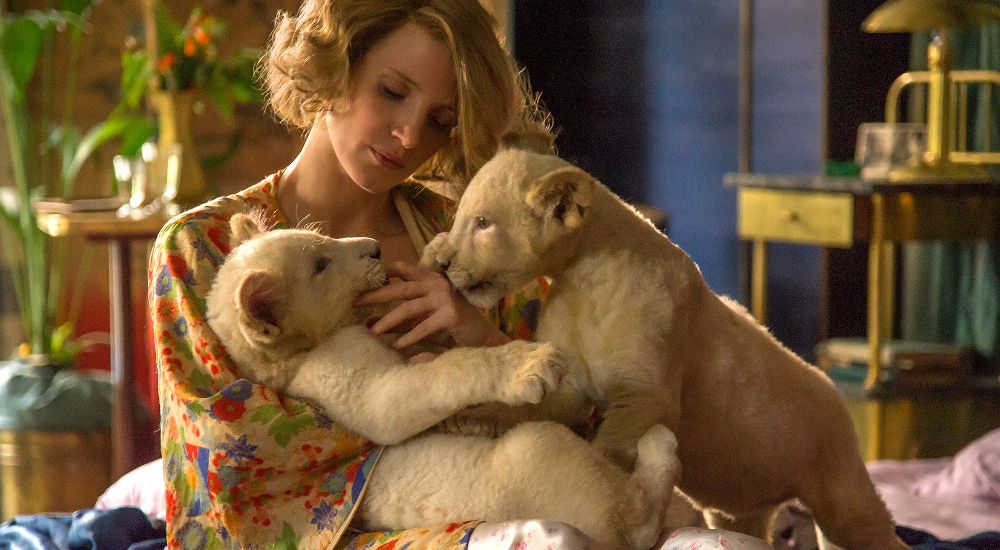“I don’t want to run away.”
Set in Warsaw, Poland, 1939, Niki Caro’s The Zookeeper’s Wife is a powerful story that shines a light on an unexpected heroine. Centered around Antonina and Dr. Jan Żabinska, a couple who owned and operated the Warsaw Zoo, the film paints an emotional picture of the Polish resistance to Nazi oppression during WWII.
Jessica Chastain, in all her brilliance, opens the film with life and an abundance of energy. Transporting herself around to all the animals, she ultimately makes her way to the gates as the eager public awaits the chance to encounter some of nature’s most beautiful creatures.
But the beauty is short lived.
It is at this point that the film’s dark and somber subject matter begins to take center stage as Warsaw comes under Nazi attack. A world of bliss is suddenly transformed into one of fear and the odd beauty of the transformation is captured poetically by director Niki Caro.
Her shot selection transcends the story, giving it an emotional pull as we witness two ordinary citizens rise to the occasion and fight back, on their terms. Realizing the cages and underground tunnels that once provided protection to animals could now provide a safe haven for humans, the film’s story arch elevates itself as creative and determined individuals work together to make a difference.
The balance between both Antonina and Jan is delicately handled as they each prove a pivotal role in the operation. Building trust with the Germans who now occupy their zoo, the decision to help was not an easy one, and it relied heavily on trust, precision and a bit of luck.
Caro did, at times, make the actions by all involved appear simpler than necessary. The decision, the coercion of those in charge and the act of smuggling out those imprisoned in the Warsaw Ghetto was no easy task. The job required equal parts courage, trust and intuitiveness to accomplish such a large feat, much of which is lost within the confines of the story.
Chastain’s simple smile, fearless tenacity and healthy spirit is contagious to those who find themselves living amongst the animal tunnels. The subtle hints regarding equality, both within her personal relationship and the country as a whole, are more timely than ever. Not to mention that her uncanny ability to relate to one and all proves to be her most endearing quality as she represents safety to those who are escaping the heartache of the Ghetto.
The violence, though diffused, is gut wrenching when it does happen. Caro does a splendid job at holding her cards tight to the cuff, never revealing more than required. Her foreshadowing is limited, just as intended, keeping us emotionally vulnerable as we await the verdict.
Though all heroines don’t get a happily ever after ending, Chastain and company have done their subjects justice, providing a legacy that was once a diary and then a novel - and now a well crafted and heartfelt film.

